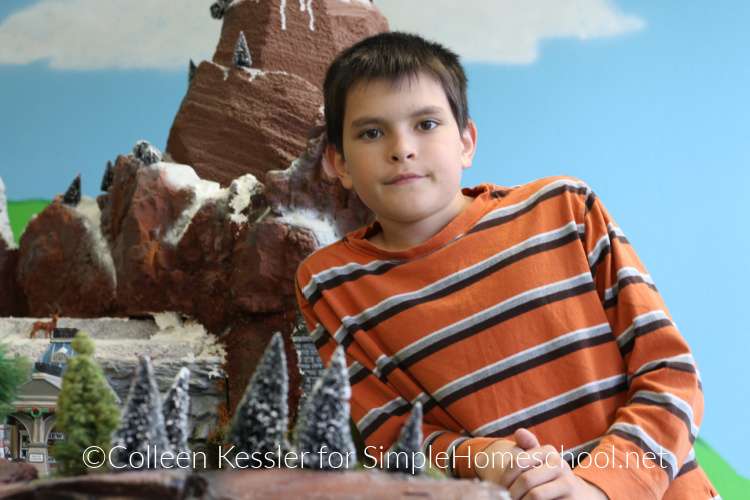 3 Myths About Homeschooling Gifted Kids ~
3 Myths About Homeschooling Gifted Kids ~
Written by Colleen Kessler of Raising Lifelong Learners
Homeschooling a gifted kid is totally a walk in the park, right? After all, they’re super-smart, pick things up easily, and are always ready to sit still, listen, and learn.
Isn’t that what gifted means?
Ummmm.
Nope.
I’m not sure there is a neurodiversity that has more misinformation spread about it than giftedness. Let’s break some of that misinformation down and bust three myths about homeschooling gifted kids here and now, shall we?
Myth #1 | Gifted Kids Are Great Students
Here’s the thing… Gifted kids can be great students. Many are. Those that are seek information insatiably, want to accelerate through their learning, and grasp new content quickly, wanting to keep going.
But, more often, they can be pretty crummy students.
They battle asynchrony, emotional sensitivity, and aren’t very academically minded at all. Oftentimes, gifted kids can be disruptive and argumentative, making it very difficult for them to get along in groups or perform in co-ops or classes.
Even profoundly gifted kiddos can struggle academically.
Myth #2 | Gifted Kids Don’t Struggle
This is probably the thing that gets in the way of properly “diagnosing” gifted kids the most often.
People tend to think gifted equals everything coming easily, and that is just not true. Gifted kids are neurodivergent, and with those quirky brains comes all sorts of other struggles and comorbid issues.
Gifted kids can have learning disabilities.
Gifted kids can have anxiety.
Gifted kids can have sensory processing disorder.
Gifted kids can be autistic.
Gifted kids can have physical disabilities.
Gifted kids can struggle.
Gifted kids are often twice-exceptional.
Myth #3 | Gifted Kids Are Well-Adjusted
Oh boy! This is a doozy.
I remember thinking that very thing when I was a graduate student just beginning my studies in gifted education. Surely, I thought, these kids who are so smart and so sharp are happy and have a clear direction for themselves.
I was so wrong.
It wasn’t until I had my own gifted kids, though, that I truly understood the emotional toll giftedness takes on kids — especially when those kids are profoundly gifted.
Gifted kids struggle with existentialism. They wonder why they were born. They question their existence. They worry that bad things will happen to them and those they love because, well, bad things happen around the world every single day.
This emotional intensity can lead to anxiety and struggles with perfectionism, among other things.
Busting Those Myths and Helping Your Child Thrive
We’re in a wonderful position because with homeschooling, we can easily nurture our kiddos’ giftedness while remediating for their disabilities in a loving way.
Homeschooling helps gifted children thrive because it gives them the freedom to learn in ways that work best for their brilliant minds!
As homeschooling parents of gifted kids, I think we need to revise our perspectives when it comes to achievement.
Most people think that kids need to follow a linear path when it comes to learning. And, while it’s true that some subjects like math tend to build upon themselves, one skill at a time, that’s just not the case for most of what kids learn during their childhood.
Homeschooling helps a gifted child thrive because it removes the typical, linear approach and it allows for true learner exploration.
And, it protects their own motivation and inspiration throughout the learning process!
The longer I homeschool my gifted children, and the more I see and talk to other parents of gifted and twice-exceptional kids, the more I believe that homeschooling is the best educational option for our nation’s above-average children.
You’re your child’s biggest advocate.
And he’s perfect just the way he is.
What’s Your Homeschool Mom Personality? Take Jamie’s quiz now and receive a free personality report to help you organize your homeschool based on what your personality type needs most!




 Weekend homeschool links: June 11th
Weekend homeschool links: June 11th